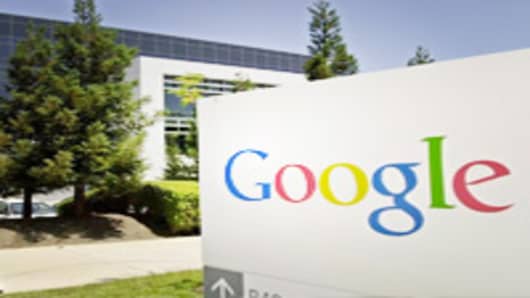Close, but no cigar, at least not yet when it comes to Google's mobile operating system platform code-named Android, at least according to the folks at The Wall Street Journal.
It's a surprise on a number of fronts, but points to one key theme at Google that might be more distressing than Android's delay all on its own: Google seems to have this knack for not being able to execute organically when it comes to new initiatives, and that could signal a deeper problem than merely a longer wait for the company's entry into the wireless world.
We've all been so focused on Microsoft and Yahoo, and Apple versus Research in Motion, that we've neglected to follow Google's Android progress. Or lack thereof. The Journal suggests that devices running on the software that should have shipped next quarter, could be delayed until Q4 instead -- or possibly into next year.
That news will surely gain headlines, but in reality, remember that the expected revenue stream from Android wasn't going to be all that significant in the early going, so a quarter or two delay isn't going to make or break Google.
It becomes a bigger deal when you look a little beyond the headlines. Bottom line is this: the longer Google waits, the more entrenched iPhone becomes; the more entrenched Blackberry becomes; the more entrenched Microsoft's mobile operating system becomes; and the tougher road Google faces.
Pablo Perez-Fernandez at Global Crown Capital tells me this morning that "I would start getting worried if T-Mobile did not release an Android handset by the fourth quarter. This would be a big blow since that carrier has been a big supporter."
But could Google also be facing carrier push-back since most want to be in a position to add or subtract their own applications? Google's made no secret that it wants to spotlight its own apps, and if it's running the underlying software, it puts Google in a kind of Microsoft position for mobile apps, and could give the company enormous control over what appears on your smart phone start-up screen.
Could the delay be more because of Google's negotiations with these carriers, instead of merely technical challenges that are preventing the company from getting this software out the door? Perez-Fernandez says the carriers enjoy the role of software apps gatekeeper, which is a lucrative position to be in. Android would significantly reduce that role for them.
Still, if this is a technical issue, it speaks to Google's deeper issues of creating new revenue streams in-house, rather than going out and acquiring the technology instead. Google still hasn't come up with a way to make money from YouTube; the company has had enormous difficulty breaking out of its search-advertising-only model; DoubleClick gets them into display advertising but Google had to spend billions to buy it, rather than developing the technology on its own.
Android puts Google into arguably the most dynamic sector in tech, but it seems like the company is having difficulties, either with its potential customers, or with the software itself.
Neither is good for Google. This company needs to execute. Signs of an Android delay are potentially disturbing. We'll know just how disturbing when the fourth quarter rolls around.
Questions? Comments? TechCheck@cnbc.com


